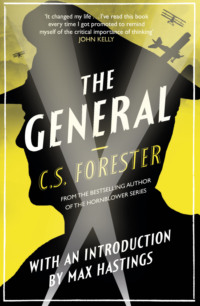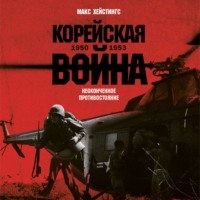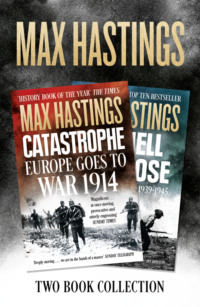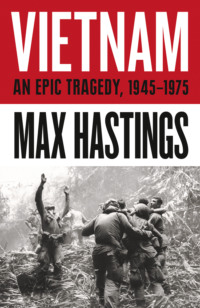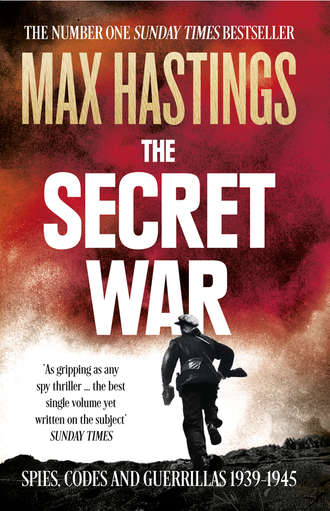
Полная версия
The Secret War: Spies, Codes and Guerrillas 1939–1945
The War Office’s deputy director of military intelligence wrote on 17 February 1942, ten weeks after Pearl Harbor, that in talking to the Americans, ‘the general policy is to be as frank as possible but no information will be given regarding our own future operations, or sources of information, nor will any information be passed which emanates from special most secret sources [Ultra]’. On 16 March the cabinet secretary Sir Edward Bridges wrote a memorandum warning that telephone conversations between London and Washington ‘still reveal instances of gross [American] lack of discretion’. Stewart Menzies and his officers at MI6 remained reluctant to open their hearts and files to their new brothers-in-arms.
Unfortunately, the British obfuscation which persisted through much of 1942 prompted misunderstandings and mounting anger among some Americans. These crystallised around a belief – entirely mistaken – that Bletchley had broken into the U-boat Shark key, but was refusing to tell the US Navy about it. Op-20-G’s eventual exasperated riposte to Bletchley’s unwillingness to surrender a bombe was to announce in September 1942 – and to begin to fulfil in August the following year – its own commitment to build four-rotor models by the hundred. This was a time when the British had just thirty-two. The American machines proved technically superior to the British models, and also more reliable: in October 1943 thirty-nine were operational and by December seventy-five, though by the time these became operational much of their capacity proved superfluous to US Navy needs.
In the early war years, British intelligence collaboration with the US was cautious; only from 1943 onwards did it become wholehearted. As with so much else about Anglo–American relations, however, it is less surprising that there was so much squabbling at the outset, in the years of Allied defeat, than that the partnership eventually achieved the intimacy that it did, in the years of victory.
* The Type-X was developed in 1934 by Wing-Commander O.C. Lywood and Ernest Smith of Air Ministry Signals, improving upon a borrowed commercial Enigma, and entered British service three years later.
4
The Dogs that Barked
1 ‘LUCY’S’ PEOPLE
The extraordinary incident of the Kremlin’s dogs in the night was that they barked, and barked. Operation ‘Barbarossa’, the June 1941 Nazi invasion of the Soviet Union, was the defining event of the Second World War – and its most baffling, because it achieved surprise when its imminence was manifest. It was a tribute to the length and strength of Stalin’s arm that humint – agents of influence abroad – provided him with comprehensive warnings. As early as July 1940, NKVD men operating in German-occupied Poland were reporting intense Wehrmacht activity, barrack-building and troop movements. That autumn, he instructed Centre to open a special file on Hitler’s intentions codenamed ‘Zateya’ – ‘Venture’. In September this showed massive German redeployments close to the Russian border, together with continuing construction of troop accommodation. The Germans’ Moscow embassy was reported by a Soviet agent within its walls to be striving to recruit White Russians and intellectual dissidents for the Abwehr. In November 1940 Stalin was told that eighty-five divisions, comprising more than two-thirds of Hitler’s infantry, were deployed along the Russian frontier.
During the months that followed, however, some of these troops were shifted to threaten, and then to occupy, Romania and Greece. Neither in 1941 nor since have most Westerners grasped the intensity of Stalin’s conviction that Hitler’s ambitions were focused on the Balkans, where Russia also had vital interests. Nor do they acknowledge the depth of his hatred and distrust of Britain. It was barely twenty years since Winston Churchill had led a crusade to reverse the Bolshevik Revolution by force of arms. Stalin saw himself, by no means mistakenly, as the object of a sustained Churchillian campaign to drive a wedge into his pact with Hitler and force him to fight Germany, against Russia’s interests and in pursuit of those of the British Empire.
The master of the Kremlin recognised that war between the Nazis and the Soviet Union might ultimately prove unavoidable. An August 1940 GRU report, quoting Hitler’s ambassador in Belgrade, showed that this was certainly the other party’s view: ‘For Germany the Balkans are the most significant asset and ought to be included in the [Nazi-controlled] new order of Europe; but since the USSR would never agree to that, a war with her is inevitable.’ Stalin, however, remained convinced that it was overwhelmingly against Hitler’s interests to break the Nazi–Soviet Pact that was delivering huge supplies of oil and commodities to Germany. He believed it was in the Kremlin’s gift to appoint the hour for a showdown, which was not yet. He clung to the view, slavishly endorsed by Beria, that Hitler was engaged in a massive bluff, designed to cow Russia into letting Germany have its way in the Balkans. Augusto Rosso, the Italian ambassador in Moscow, wrote on 21 September 1940: ‘The Germans have raised a barrier [against the Russians]: the march to the south has been stopped, the oil is at the disposal of the Germans … The Danube is a German river. This is the first diplomatic defeat of Comrade Stalin … and the defeat is even more humiliating because it explodes the dream which throughout the centuries has occupied a special place in the Russian soul: [dominance] of the southern meridian.’
Friedrich von der Schulenberg, Germany’s ambassador, helped to assuage Moscow’s fears about Berlin’s intentions, because his own honesty and sincerity were manifest, and directed towards preserving peace. Beria told Stalin that once Vichy France and Spain had joined the Axis as expected, Hitler planned to induce him to join a pact that would close a steel ring around Britain: ‘Pressure was to be exerted on Russia,’ the Soviet intelligence supremo wrote on 24 October 1940, ‘to reach a political agreement with Germany which would demonstrate to the entire world that the Soviet Union will not hold aloof, and actively join the struggle against Britain, to secure a new European order.’ In November Molotov was dispatched to Berlin, to discover ‘the real intentions of Germany’s proposals for the New Europe’. The foreign minister made plain that Stalin still sought control of the mouth of the Danube, which Hitler had no intention of conceding, and the visit confirmed Germany’s leader in his commitment to war.
The NKVD’s informants in London asserted, correctly, that many of Britain’s businessmen and bankers favoured a compromise peace. Moscow was appalled by such a prospect, which would make Hitler unstoppable. The Kremlin aspired to see Germany weakened, to make Hitler more biddable. Thus, for all Stalin’s disdain for Churchill and his people, he was delighted by British successes against the Luftwaffe at home and the Italians in North Africa. Ivan Maisky, the Soviet ambassador in London, waxed lyrical about the prospects, writing on 3 November 1940: ‘England has not merely survived, but has strengthened its position compared with that which prevailed after the fall of France … in the “Battle of Britain”. Hitler, like Napoleon 135 years earlier, has suffered a defeat, his first serious setback of this war; the consequences are impossible to foresee.’
Through the winter of 1940–41, Stalin was battered by contrary winds and fears. The NKVD and GRU reported insistently and accurately, on the authority of its secret Whitehall informants, that the British were considering a bomber assault on his Baku oil wells, which were supplying Russian fuel to the Luftwaffe. The Kremlin was even more dismayed by Axis preparations to invade Greece, which could presage seizure of the Dardanelles, a centuries-old Russian nightmare. If Turkey came into the war on either side, Stalin thought its army liable to invade the Caucasus, of which the Ottomans had been dispossessed barely seventy years earlier. Vsevolod Merkulov, Beria’s deputy, reported intense Turkish intelligence activity on the Russian border. Meanwhile the Turks, for their part, were fearful of Nazi aggression, and in January 1941 their embassies began to brief the Russians about the German build-up in Romania. The GRU asserted on 27 January 1941 that the Balkans ‘remained the decisive focus of political events, particularly since a headlong clash of German and Soviet vital interests has arisen there’.
But although Stalin was receiving a stream of intelligence about the Nazi threat to the Balkans, there was a torrent about the direct menace to the Soviet Union. On 5 December 1940 Vladimir Dekanozov, Soviet ambassador in Berlin and a veteran intelligence officer, received an anonymous letter: ‘To Comrades Stalin and Molotov, very urgent. Russia, please be alert, as Hitler is soon going to attack you. It will soon be too late, but Russia is asleep now. Can’t you see what is happening on the borders, from Memel to the Black Sea? East Prussia is filled with troops, new units are arriving day and night …’ Moscow was informed by its Berlin military attaché just eleven days after Hitler signed his Directive 21 on 18 December, calling on the Wehrmacht ‘to crush Soviet Russia in a rapid campaign’. In mid-March 1941 the Soviet military attaché in Bucharest reported a German officer telling a friend: ‘We have completely altered our plans. We aim at the East, at the USSR. We shall seize the Soviets’ grain, coal and oil. We shall then be invincible and will be able to continue the war against England and the United States.’
Beria and Stalin nonetheless agreed that there was alternative evidence to show this to be mere sabre-rattling: Hitler was making a show of force on Russia’s border to advance his Balkan purposes. A 20 March 1941 GRU assessment by Gen. Filip Golikov stated what he knew his readership wished to hear: ‘The majority of the intelligence reports which indicate the likelihood of war with the Soviet Union in spring 1941 are derived from Anglo-American sources, whose immediate objective is undoubtedly to promote the worsening of relations between the USSR and Germany.’ The Swedish minister in Moscow, Vilhelm Assarasson, was consistently well informed about Nazi decision-making, and knew about the commitment to ‘Barbarossa’. But Assarasson’s tip was discounted, because it was forwarded to the Kremlin by Stafford Cripps, the British envoy. The NKVD intercepted the dispatches of Turkish ambassador Haydar Aktay, who also cited Assarasson’s information, along with reports of Hitler’s indiscretions to Prince Paul of Yugoslavia, predicting war. Aktay’s view was also dismissed.
In March Soviet intelligence suffered a shock. Moscow considered it an important interest to keep Yugoslavia out of Hitler’s grasp. When it became aware that Prince Paul, the ruling regent, intended to throw in his lot with the Axis, Gen. Solomon Milshtein and a band of GRU ‘illegals’ were dispatched to Belgrade to organise a coup against him. They were confounded when Britain’s SOE pre-empted them, launching its own coup to install King Peter II. Moscow was even more appalled a few days later, when the Wehrmacht swept across Yugoslavia in the face of negligible resistance. Yet even though the Russians sympathised with its people, as fellow-Slavs, Stalin dismissed their pleas for military assistance. He remained stubbornly determined not to be provoked by the British – as he saw it – into an armed struggle against Germany over Yugoslavia. He merely signed a meaningless non-aggression agreement with Belgrade, shortly before German troops swept its new government aside. He had set a course – to buy time before confronting Hitler – and was determined nothing should deflect him from it, least of all the intelligence reports that swamped Moscow Centre between September 1940 and June 1941.
It is hard to assess the contribution of Soviet agents in Switzerland at this time, because modern knowledge is almost entirely dependent on the principals’ later memoirs. All were compulsive liars, bent upon inflating their own roles. Thus, what follows is even more speculative than most accounts of Russian activities. The onset of war had created financial and logistical difficulties for Alexander Radó. There was no Soviet legation in Bern through which cash could be channelled to him, and his cartographic business languished. He was left with little money to fund himself and his family, far less a spy network. Alexander Foote, trained by Ursula Hamburger to serve as Radó’s wireless-operator, was striving with equally meagre funds to sustain a masquerade as a British gentleman of leisure, hoping to sit out the war in the comfort of Lausanne. Wireless assumed a new importance for the network after the fall of France, because Radó could no longer use couriers to shift paper reports via Paris. To provide greater security for the Ring’s communications, he opened a second transmitter operated by a Geneva electrical engineer named Edmond Hamel, who was trained by Foote. Hamel inspired mockery because he was a very small man married to a very large wife, Olga, but he cherished an idealistic enthusiasm for the Soviet Union.
In March 1940, Moscow ordered Anatoli Gourevitch – ‘Monsieur Kent’ – to travel from Brussels to Geneva to hand over a new code to ‘Dora’ – Radó. This was a breach of every rule of espionage, barring contact and thus the risk of contamination between networks, but the GRU man was pleased to be given such an opportunity to spread his wings. As a supposed rich young ‘Uruguayan tourist’, Vincente Sierra commissioned Thomas Cook to make his arrangements, and took a fat book of travellers’ cheques to support his cover. On the train from Paris to Geneva, a man who looked familiar took the seat opposite him. Gourevitch was amazed when his companion introduced himself as Jean Gabin, greatest French film star of the age, on his way to Geneva to see his son make his debut as a circus performer. The two exchanged visiting cards. The enchanted young Russian decided that being a secret agent had many compensations.
Installed in Geneva’s Hôtel Russie, he divided his time between tourism, nightclub visits to support his cover, and a cautious reconnaissance of 113, Rue de Lausanne, the address Centre had given him for Radó. He called the Hungarian’s number from a telephone box, then went to a cinema and left in the middle of the film, to walk to Radó’s house. He was welcomed warmly, but with surprise, according to Gourevitch. The visitor later claimed that he had been bemused by Radó’s ‘careless air’, and by the agent’s claim that, despite the depredations inflicted by war, he still had some money because his map business was not doing badly. Radó introduced his wife Lena, then the two men closeted themselves in his study. Gourevitch handed over a French novel which provided the new key for coding messages. Over the course of the next few hours they practised the routine repeatedly, until both were satisfied that Radó had mastered it. Then they parted, agreeing to meet again in Lausanne, which was conveniently near Montreux, where the ‘Uruguayan tourist’ had booked a stay of several days. Following this second meeting they lunched together in a restaurant, then wandered the streets.
Most Russians abroad suffered severely from homesickness. When Soviet agents met and had leisure enough to gossip, the first question to a man or woman fresh from Moscow was almost always ‘What news from “the village”?’, as they called their country’s capital. Though Radó was Hungarian, according to Gourevitch they talked indiscreetly about each other’s experiences of Centre. Radó allegedly begged his contact to emphasise to Moscow the lofty nature of his sources in Berlin. The Geneva agent also told him the Germans were planning to attack the Soviet Union. Yet it is implausible that in April 1940 Radó should have said Germany was preparing to invade Russia, because at that time Hitler had made no such decision, nor even come near to it. What seems certain, however, is that Centre was rash in sending Gourevitch to Geneva, and that its spies told each other things they should not have done, dangerous to both networks.
At the end of December 1940 Ursula Hamburger left Switzerland for England, where her German communist brother was already living in exile. She was soon followed by her husband Len Brewer. Her set – a ‘musical box’ in their jargon, just as a forger was a ‘cobbler’ and police ‘the doctor’ – was taken to Geneva. Alexander Foote moved back to Lausanne with his own transmitter. It was too dangerous to install an external aerial on his apartment building. Instead, he persuaded a nearby wireless shop to supply the deficiency, saying that he wanted to listen to the BBC. For months, however, he proved unable to raise Moscow. Despite passing countless hours hunched over a Morse key in the kitchen, his urgent pulses vanished into a void. Then on 12 March 1941 came an electrifying moment: into his earphones flickered a response ‘NDA, NDA, OK, QRK5.’ He was in touch with Centre.
Swiss intelligence must have been aware of the Radó group’s transmissions, but at that stage they made no attempt to interfere, even when the Gestapo protested fiercely to Bern about the flood of signals its operators monitored from across the border. The spies now boasted a third transmitter: Radó had met a young woman named Margrit Bolli, daughter of strongly socialistic parents, who said that she was eager to help the communist cause. The Ring trained the twenty-three-year-old girl in Morse technique. Initially she transmitted from the family home in Basle, but when her parents not unreasonably baulked, she moved to Geneva. The Gestapo, listening in frustration to the signals – still unintelligible to them – flooding across the ether from Bolli, Foote and the Hamels christened them ‘Die Rote Drei’ – ‘The Red Trio’.
Who was giving Radó the information from Germany which was forwarded to Moscow in an average of five messages a day? The activities of ‘Cissie’, Rachel Dübendorfer, had now been merged into those of his group. Colleagues described her as a charmless woman of Balkan origins. She lived with Paul Böttcher, a former German communist illegally resident in Switzerland: Dübendorfer more than once used her nominal Swiss husband’s identity documents to preserve Böttcher’s neck. It is alleged that one of her sources provided an explicit warning of ‘Barbarossa’. Meanwhile one of Radó’s messages, dated 21 February 1941, quoted a Swiss intelligence officer, Mayr von Baldegg or ‘Luise’, predicting a German invasion at the end of May, a forecast perhaps secured by the Swiss Viking intelligence network inside Germany, and endorsed by a prominent Japanese diplomat. The network also became a conduit through which some Czech intelligence was passed to Moscow, most of it ultimately derived from the Abwehr’s Paul Thummel. At the end of May Radó cited a French diplomat, Louis Suss, predicting an invasion on 22 June – this message provoked an icy response from Moscow. So did another report to the same effect from Rudolf Rössler, who would henceforward become the foremost source for the Radó network. His codename ‘Lucy’ has passed into history, since the GRU’s Swiss operation became familiarly known as the ‘Lucy’ Ring.
Rössler, a small, grey, bespectacled German émigré born in 1897, was an impregnably enigmatic figure, of a kind that populates many spy sagas. A socialist journalist, he fled from the Nazis in 1935 and set up a little publishing business in Lucerne – the city that prompted his codename. He began writing under the name of R.A. Hermes, describing the Nazi persecution of Jews and warning that the Nazis would reoccupy the Rhineland. Berlin identified ‘Hermes’, and in 1937 deprived Rössler of his German citizenship. He nonetheless retained many connections in his homeland, especially within the Wehrmacht. Short of both friends and cash in Switzerland, he began to provide information to a private intelligence agency called Buro Ha, based at the Villa Stutz south of Lucerne, and run by an ardent anti-Nazi named Captain Hans Hausamann. Buro Ha had informal links to Swiss intelligence, which for a season thereafter provided some protection for Rössler.
He secured a steady flow of information from Germany, and apportioned varying quotas to Swiss, British, Czech and Soviet purchasers. Though his anti-Nazi credentials were not in doubt, he was principally and of necessity a mercenary – all his customers had to pay cash. By 1942 he had become by far the GRU’s most important Swiss source, the key figure in the Radó network. Moscow Centre, mistrustful of this shadowy figure, insistently demanded that Radó should make Rössler identify his sources, and the journalist equally stubbornly refused to do so. For all his later importance, it remains unclear how much intelligence he provided in 1941. Rössler went to his post-war grave still silent about the identity of the Germans who had provided him with useful, even sensational material. Subsequent speculation has focused on Col. Hans Oster, deputy head of the Abwehr; Hans Gisevius; former Leipzig mayor Gördeler; and two unnamed Wehrmacht generals.
Uncertainty also persists about the timing and wording of some of the Swiss Ring’s messages and their supposed warnings to Moscow, both before and after ‘Barbarossa’. All that can confidently be said is that the GRU received a stream of messages from Switzerland in the spring of 1941, some of which strongly indicated that Hitler intended to attack Russia. Equally significant for the strategic debate in Moscow, Centre learned that Rudolf Rössler had been, and probably continued to be, an informant of MI6’s Bern station. It was only one step from this knowledge to a belief inside the Kremlin that the ‘Lucy’ Ring had become an instrument of Churchill, peddling false information to drag Russia into the war.
2 SORGE’S WARNINGS
Stalin’s Japanese sources told much the same story as his Swiss ones, though since the outbreak of war in Europe the strain of sustaining twin lives, occupying a much higher profile than the ‘Lucy’ spies, had exacted an ever worsening toll on its principal agent. Richard Sorge strove to use his influence to dissuade the Germans from war with Russia. He told the Tokyo embassy that Nomonhan – the summer 1939 Russo–Japanese border clashes – had been a disaster for the Japanese, and that Berlin should notice the effectiveness of the Red Army and of Zhukov, its local commander. Then came the huge shock of the Nazi–Soviet Pact, which stunned the Japanese government.
And Sorge. The spy reported on 12 August 1939 the movement of twelve Japanese divisions to Korea and Manchuria – the real total was twenty – in case the government decided on war, but he expressed his own conviction that Japan would hold back, and indeed on 4 September Tokyo formally announced a policy of non-intervention. Sorge told Moscow, on Hotsumi Ozaki’s authority, that the country would enter the war only when it was confident that it had identified the winner. He added that the German embassy expected the Japanese to remain neutral, and was even nervous they might join the Allied camp.
Sorge’s surreal relationship with Col. Ott’s mission took a new twist when he was offered a staff post as its press attaché. He declined, as usual because he was fearful of the security checks into his past that acceptance would have provoked, but he worked four hours a day in the embassy building, while assuming a new journalistic role as a stringer for Frankfurter Zeitung. It was scarcely surprising that in October the Japanese police foreign section, the Tokko, committed an agent – twenty-eight-year-old Harutsugu Saito – to shadow Sorge. They suspected that he was spying … for Germany. Saito noticed Max Clausen and began to take an interest in him, too.
During the months that followed, stresses on the network intensified. Branko de Voukelitch disclosed his work for the Soviets to his adored Japanese lover Yoshiko. In 1940 the couple were married, and she never betrayed him, but his indiscretion was appallingly risky. Max Clausen became grossly overweight, and his health deteriorated. Bedridden for some time, he had to get his wife Anna to assemble the transmitter before tapping out messages to Moscow from his sickroom. His employers were unsympathetic. Clausen was peremptorily informed by the Fourth Department that funding was tight: pay was being reduced. His little blueprint reproduction company employed fourteen people, had opened a branch in Mukden and was fulfilling assignments for the Japanese War and Navy Ministries. Moscow said that he must henceforth subsidise himself out of its profits. In a farcical twist, Clausen became increasingly admiring of Hitler – who was, after all, now supposedly Stalin’s friend.


